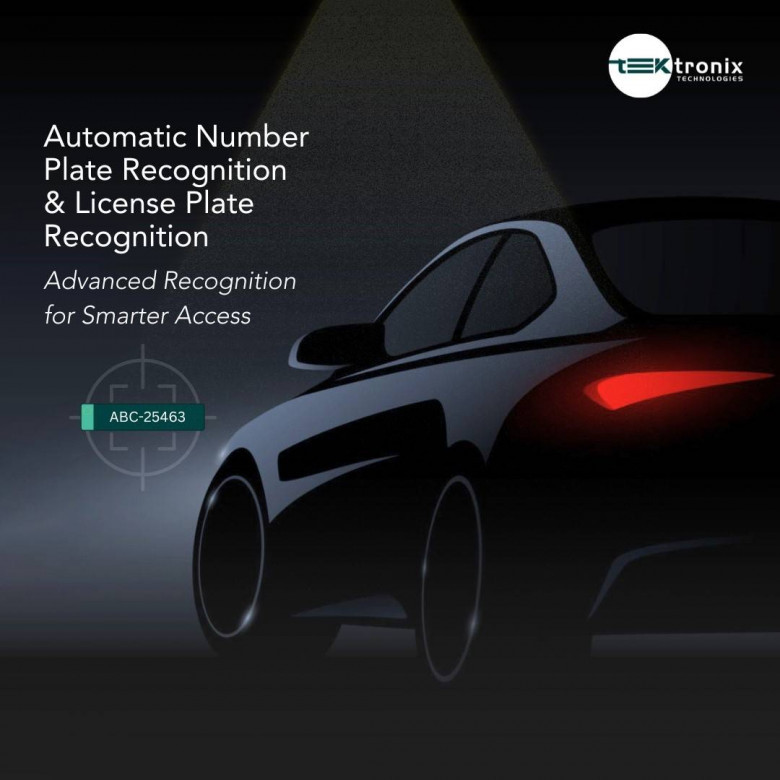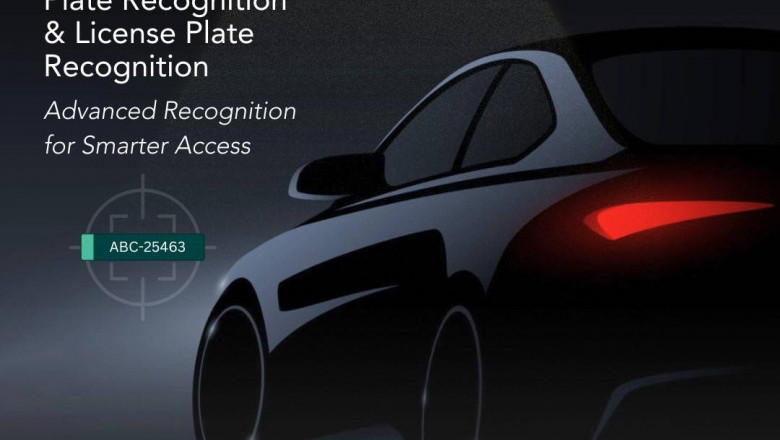views
What Are ANPR and LPR Cameras?
ANPR and LPR cameras are technologies that process and capture vehicle license plate data in real-time. With high-resolution cameras, and optical character recognition (OCR) software, they can read, recognize and record the license plate information.
These are the systems that make up advanced traffic management system that allow authorities to keep track of roads and improve circulation with minimal intervention.
How Do ANPR and LPR Cameras Function?
- Images Capture: ANPR and LPR cameras record images of moving cars, with a focus on the plates of their drivers.
- Data Processing: Images that are captured are processed using OCR software that converts the images into digital information.
- Information Storage and Analysis: The data processed is saved in central systems where it is analyzed in order for monitoring traffic patterns, or find any violations.
- Real-time Alerts: These systems are able to provide alerts about stolen vehicles as well as traffic violations or any suspicious activity that occurs in real time.
This process is seamless and ensures precise automatic, reliable, and effective surveillance of the flow of traffic throughout the UAE.
Why ANPR and LPR Cameras Are Essential for UAE Traffic Management
1. Addressing Growing Traffic Congestion
Cities like Dubai or Abu Dhabi witnessing heavy vehicular activity, ANPR and LPR cameras assist in tracking the speed of vehicles and help reroute them and reduce congestion.
2. Supporting Smart City Goals
The UAE is at the cutting edge of intelligent city initiatives that integrate ANPR as well as LPR cameras with smart traffic management systems to ensure sustainable urban planning and sustainable development.
3. Enhancing Road Safety
Monitoring speeds, checking for the violations and checking compliance of road regulations, these systems help to ensure safer roads.
4. Automated Toll Collection
The extensive network of tolls in the United Arab Emirates rely on ANPR technology to process tolls, without having vehicles stop to ensure a smoother circulation.
5. Reducing Emissions
Through reducing congestion and creating better flow of traffic, ANPR as well as LPR cameras help reduce car emissions and help to achieve the goals of sustainability in the United Arab Emirates.
Applications of ANPR and LPR Cameras in the UAE
1. Monitoring High-Traffic Areas
The major highways and roads of the UAE including Sheikh Zayed Road and Al Khail Road benefit from ANPR & LPR cameras to ensure continuously monitoring traffic.
2. Toll and Fee Collection
Systems that are in Dubai utilize ANPR technology to facilitate cashless collection. This improves efficiency as well as cutting down on the amount of time.
3. Parking Management
The parking areas of shopping malls, airports and commercial districts use LPR cameras to automate vehicles' entry and exits increasing parking efficiency.
4. Law Enforcement
The Dubai Police and other law enforcers use ANPR devices to track cars involved in criminal activity or traffic infractions.
5. Border Control
ANPR or LPR cameras are vital in securing vehicles entering the borders of the United Arab Emirates, and ensuring the security of our citizens and ensuring compliance.
How ANPR and LPR Cameras Mitigate Traffic Congestion in the UAE
- Dynamic traffic signal adjustments: ANPR systems adjust traffic signals according to real-time vehicles' density, which optimizes circulation.
- Real-time rerouting: Data from traffic sensors on ANPR cameras are used to redirect vehicles onto more efficient routes and avoid congestion.
- Violation detection: identifying cars that are breaking laws, for example parking illegally or speeding can help maintain the peace on roads.
- Long-Term Plan: The data taken from ANPR or LPR systems helps urban planners in creating improved road networks that can keep up with future demand.
Challenges in Implementing ANPR and LPR Cameras in the UAE
1. High Installation Costs
Maintaining and installing ANPR as well as LPR devices across the extensive roads of Dubai is a major expenditure.
2. Privacy Concerns
The gathering of data from vehicles creates privacy concerns, requiring rigorous regulations that protect individuals' rights.
3. Environmental Challenges
Sandstorms and extreme weather conditions may affect the performance of these cameras and require regular cleaning.
4. Integration with Legacy Systems
In some cases, integrating ANPR or LPR cameras in conjunction with old traffic management systems could present technical difficulties.
Future of ANPR and LPR Cameras in the UAE
As the UAE moves forward towards the development of smart cities, ANPR and LPR cameras will play a more crucial function. Technologies such as AI-powered data analytics as well as machines learning will likely to improve the effectiveness of these cameras, which will make them more effective and efficient. Through ongoing investment in infrastructure and technology, the UAE is setting the international standard in traffic management.
Conclusion
The adoption by the UAE of ANPR and LPR cameras shows its commitment to modernizing the traffic management system and making the city a more sustainable place to live. The systems do not just lessen congestion, they also increase traffic safety, improve the collection of tolls, and boost police efforts. While issues such as privacy and cost need to be dealt with, the advantages associated with ANPR as well as LPR cameras are far greater than the disadvantages. As the UAE is moving towards smarter and better-performing cities, the devices remain essential in creating the future of the country.
FAQs
1. How can ANPR as well as LPR cameras aid in reducing congestion in traffic?
ANPR or LPR cameras track the flow of traffic continuously by allowing dynamic signal adjustments in rerouting vehicles, as well as monitoring for violations in order to enhance the flow.
2. Are ANPR as well as LPR cameras in use throughout every UAE cities?
Indeed, large cities such as Dubai, Abu Dhabi, and Sharjah heavily rely on these system, particularly in the high-traffic areas as well as areas for collecting tolls.
3. Do these systems work in the onset of sandstorms?
ANPR as well as LPR cameras are made for long-lasting use, but severe weather events like sandstorms can alter their capabilities temporarily.
4. What is the way ANPR technology assist police across the UAE?
ANPR cameras help in tracking stolen vehicles, finding offenders as well as ensuring that they are in compliance with traffic rules.
5. There are privacy concerns associated regarding privacy concerns ANPR or LPR cameras?
The collection of information about license plates can raise privacy issues. The UAE is governed by regulations that ensure responsible usage of these information.
For more information contact us on:
Tektronix Technology Systems Dubai-Head Office
+971 50 814 4086
+971 55 232 2390
Office No.1E1 | Hamarain Center 132 Abu Baker Al Siddique Rd – Deira – Dubai P.O. Box 85955
Or click on the below link for more information:
https://tektronixllc.ae/anpr-lpr-camera-installation-uae-saudi-arabia-oman-qatar/























Comments
0 comment